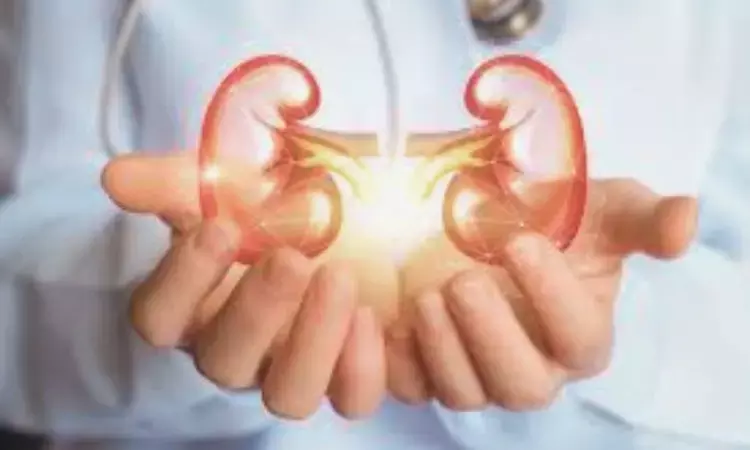- Home
- Medical news & Guidelines
- Anesthesiology
- Cardiology and CTVS
- Critical Care
- Dentistry
- Dermatology
- Diabetes and Endocrinology
- ENT
- Gastroenterology
- Medicine
- Nephrology
- Neurology
- Obstretics-Gynaecology
- Oncology
- Ophthalmology
- Orthopaedics
- Pediatrics-Neonatology
- Psychiatry
- Pulmonology
- Radiology
- Surgery
- Urology
- Laboratory Medicine
- Diet
- Nursing
- Paramedical
- Physiotherapy
- Health news
- Fact Check
- Bone Health Fact Check
- Brain Health Fact Check
- Cancer Related Fact Check
- Child Care Fact Check
- Dental and oral health fact check
- Diabetes and metabolic health fact check
- Diet and Nutrition Fact Check
- Eye and ENT Care Fact Check
- Fitness fact check
- Gut health fact check
- Heart health fact check
- Kidney health fact check
- Medical education fact check
- Men's health fact check
- Respiratory fact check
- Skin and hair care fact check
- Vaccine and Immunization fact check
- Women's health fact check
- AYUSH
- State News
- Andaman and Nicobar Islands
- Andhra Pradesh
- Arunachal Pradesh
- Assam
- Bihar
- Chandigarh
- Chattisgarh
- Dadra and Nagar Haveli
- Daman and Diu
- Delhi
- Goa
- Gujarat
- Haryana
- Himachal Pradesh
- Jammu & Kashmir
- Jharkhand
- Karnataka
- Kerala
- Ladakh
- Lakshadweep
- Madhya Pradesh
- Maharashtra
- Manipur
- Meghalaya
- Mizoram
- Nagaland
- Odisha
- Puducherry
- Punjab
- Rajasthan
- Sikkim
- Tamil Nadu
- Telangana
- Tripura
- Uttar Pradesh
- Uttrakhand
- West Bengal
- Medical Education
- Industry
Sacubitril/Valsartan Outperforms ACEI/ARB Therapy in Kidney Recovery for Thrombotic Microangiopathy: JAMA

China: A recent cohort study has suggested that sacubitril/valsartan may offer superior kidney function benefits for patients with thrombotic microangiopathy (TMA) associated with malignant hypertension (mHTN), compared to traditional angiotensin-converting enzyme inhibitors (ACEIs) and angiotensin receptor blockers (ARBs).
The research, published in JAMA Network Open, highlights the potential of sacubitril/valsartan as an advanced therapeutic option for managing this severe kidney condition.
Thrombotic microangiopathy, characterized by the formation of blood clots in small blood vessels, often leads to acute kidney injury and can be challenging to treat effectively. The standard approach for managing TMA associated with mHTN has traditionally involved using ACEIs and ARBs, both of which help control blood pressure and provide renal protection. Treatment strategies are still not well established.
Against the above background, Jianbo Li, Guangdong Provincial Key Laboratory of Nephrology, Guangzhou, China, and colleagues aimed to assess the kidney outcomes of sacubitril/valsartan, an angiotensin receptor-neprilysin inhibitor (ARNI), compared to angiotensin-converting enzyme inhibitors and angiotensin receptor blockers in patients with thrombotic microangiopathy associated with malignant hypertension.
For this purpose, the researchers conducted a single-center cohort study in China, enrolling consecutive patients diagnosed with mHTN-associated TMA through kidney biopsy between January 2008 and June 2023.
The study compared the effects of sacubitril/valsartan and ACEIs or ARBs on kidney outcomes, assessing both treatments during hospitalization and after discharge. The primary outcome of interest was kidney recovery, defined as either a 50% reduction in serum creatinine levels, normalization of serum creatinine levels to the reference range, or kidney survival without dialysis for more than one month. Secondary outcomes included a 15% increase in the estimated glomerular filtration rate (eGFR) from baseline and kidney survival free from dialysis.
To analyze the effectiveness of sacubitril/valsartan compared to ACEI/ARB therapy, the researchers employed propensity score matching (PSM) and Cox proportional hazards regression analysis. These methods were used to evaluate the association between the therapies and kidney recovery outcomes, aiming to determine which treatment offers better benefits for patients with mHTN-associated TMA.
The study led to the following findings:
- Among the 217 patients (mean age, 35.9 years; 86.6% men) included in the study, 66 received sacubitril/valsartan, and 151 received ACEI/ARBs at baseline.
- Sacubitril/valsartan treatment was associated with a shorter time to the primary outcome compared with ACEI/ARB treatment (31.7% versus 32.5%; adjusted hazard ratio [aHR], 1.85).
- Sacubitril/valsartan treatment was independently associated with shorter time to a 15% increase in eGFR (32.6% versus 55.4%; aHR, 2.13) and kidney survival free from dialysis (47.8% versus 28.1%; aHR, 2.63) compared with ACEI/ARB treatment. These differences remained significant in the PSM comparison.
"The findings indicated that sacubitril/valsartan may offer superior benefits for kidney recovery in managing this serious condition," the researchers concluded.
Reference:
Li J, Liu Q, Lian X, et al. Kidney Outcomes Following Angiotensin Receptor-Neprilysin Inhibitor vs Angiotensin-Converting Enzyme Inhibitor/Angiotensin Receptor Blocker Therapy for Thrombotic Microangiopathy. JAMA Netw Open. 2024;7(9):e2432862. doi:10.1001/jamanetworkopen.2024.32862
Dr Kamal Kant Kohli-MBBS, DTCD- a chest specialist with more than 30 years of practice and a flair for writing clinical articles, Dr Kamal Kant Kohli joined Medical Dialogues as a Chief Editor of Medical News. Besides writing articles, as an editor, he proofreads and verifies all the medical content published on Medical Dialogues including those coming from journals, studies,medical conferences,guidelines etc. Email: drkohli@medicaldialogues.in. Contact no. 011-43720751


